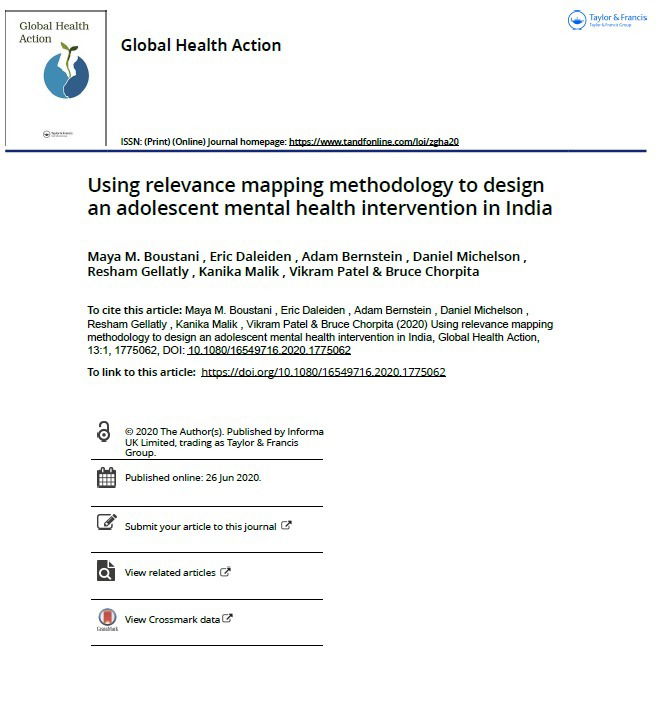Using relevance mapping methodology to design an adolescent mental health intervention in India

Background
Adolescents in low and middle-income countries experience pronounced mental health needs in contexts where infrastructure and resources are scarce. While evidence-based treatment are readily available, they may not fit the unique needs of certain contexts.
Objective
This manuscript illustrates the systematic process of applying ‘relevance mapping’ methodology to leverage the youth mental health evidence base to identify candidate practices for inclusion in the development of a contextually appropriate psychological treatment protocol for common adolescent mental health problems in India.
Methods
The practice identification was informed by two datasets obtained from adolescent samples in India. The first was an epidemiological dataset from a large community sample in Goa (N = 2,048); the second incorporated ‘youth top problems’ reported by service-seeking students presenting to school counsellors in Goa and Delhi (N = 78). Problems identified in each dataset were categorized using structured codes. Problem codes and youth demographics were then indexed against a database of hundreds of evidence-based psychological treatments and their associated clinical trials. This methodology revealed the most common practice elements (discrete therapeutic strategies) and their most efficient combinations with evidence of effectiveness matching the demographics and diagnostic category (anxiety, disruptive behaviors and depression) prevalent in the planned treatment population.
Results
For anxiety, the most common practice elements for this age group were exposure, cognitive coping, and psychoeducation. For disruptive behaviors, the most common practices were problem-solving, goal-setting, and rapport-building. For depression, cognitive coping, behavioral activation, and psychoeducation were the most common practice elements.
Conclusion
These practice elements provided the treatment development team with a preliminary list of candidate content for the development of an intensive psychological treatment within a stepped care service model to address common adolescent mental health problems in schools in India.
Full text available here: Boustani et al (2020)



